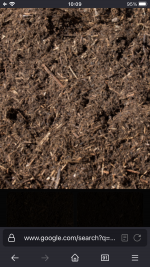Growdo Baggins
Active member
I found the living soil thread on here and I'm going to begin to read through it. I was just concerned bc it was from 10 years ago and Science is finding new things all the time, so I didn't know if maybe there was more recent info if it applies. I'm new to this but I've been learning a lot from Teaming With Microbes and Nutrients. My initial thought was to purchase soil through kis organics bc they'll basically teach me everything I need to know. But the more I learn the more I think I can do it myself. Plus I'm worried they're just going to throw kis nutrient packs at me and kis compost tea and not actually teach me how to just grow using organic inputs. I'm new to growing as well but have had 3 successful harvests with fox farm nutrients and soil. I was most likely going to use Coots recipe using Malibu BU compost. I was hoping for maybe a good book or thread or website recommendation. Or anything that can help me better understand what I need to make a good living soil.




